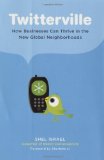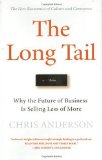Top Ten Questions for Sweepstakes … Marketing Pilgrim
So I just started reading Marketing Pilgrim and by telling them why I like them, I have a chance to win $500. This got me thinking about the value of sweepstakes or promotions. Frankly, I never used to be a sweepstakes person, but when I won a trip to London last year, I can’t get enough.
Whether it’s Home Depot surveys or putting my business card into a fish bowl, I seem to be drawn to it. Sweepstakes, as a marketing tactic, can be great for driving tons of people to your promotion, but what is the value to your company?
Before I highlight why I like reading Marketing Pilgrim, here are My Top 10 Questions for Sweepstakes Promotions that you should consider before engaging in one:
1. How does the promo/sweepstakes positively tie back to your company, messages and/or product?
2. Which is more important, the number of people who register for your promo or the quality?
3. Is the goal brand awareness or lead generation?
4. Once you have people registered, do you have a program in place to convert them into customers?
5. And if they do become customers, how do you maintain a long-term relationship versus the short burst from the promo?
And if your PR agency recommends a sweepstakes or promo, here are additional questions to consider:
6. How will the PR team measure the success (short and long-tem) of the initiative?
7. Who’s doing the work – the PR folks or you, the marketing team?
8. How much will this cost to do?
9. How will you manage this program with the month-to-month activities?
10. Besides doing the promotion to get eyeballs, which media outlets or blogs will write about this?
Now back to Marketing Pilgrim. I read them because they really do get it. For example, their $500 promo directly appeals to readers to explain why they like reading the blog and the money is a token of appreciation. This benefits both sides with increased awareness, while giving me food for thought for my posting. They have a good sense of humor while providing nuggets of wisdom for my personal blogging and my day job. And they’re prolific – I know that no matter when I check my Google Reader, there is something I can read. It’s not fluff but relevant to me.
What else can I say?
Technorati Tags: marketing Marketing Pilgrim pr promotions public relations sweepstakes
"I, Borg. I, Cece"
In the world of an agency, the mentality is one of the Borg. The goal is to highlight team achievements and not individualistic ones. From an agency perspective, this is practical so no one person becomes integral to an account. If one person leaves, it minimizes impact to the collective.
In the classic Star Trek: Next Generation “I, Borg” episode, a single borg is separated from his collective and learns to exist as an individual. His seminal moment is stating, “I, Borg” – the point when he no longer refers to himself as part of a group but as an individual.
Like Hugh, I left the comfort of the agency collective when I went in-house. I’m not saying individual responsibility was overlooked in an agency. It’s just the client may not be aware of which team member was directly responsible for the achievement. After spending most of my career at an agency, the change in mentality is difficult to adjust to.I’ve noticed how this has impacted my work in three ways:
1. No Hiding: Now, I’m keenly aware of how my individual contributions are being evaluated and measured. Every decision, media placement, customer case study and press release directly reflects on me. There is no we, it’s only me. There’s no one to hide behind.
2. Better Decisions on Media Outreach: I am more attuned to which media placements drive traffic to my website based on Google Analytics. And when there is a call to action for my media activities, I can add source codes to link to track traffic and measure results. Based on this, I can determine how much effort to put into one media outlet versus another. Not an exact science, but useful information nonetheless, especially if queried about which outlets to focus on.
3. The Value of I: I’m learning how to slowly drop the “we” for “I.” Again, don’t get me wrong, I do acknowledge when things are a team effort. But I also have to recognize when and how to take individual responsibility for my work. Understanding the “value of I” is very key for moving beyond the agency world.What do you think? I would love to hear from others who have made the transition – either to in-house or to an agency.
Multiple Personalities: Balance Between Personal and Work Identities
I previously wrote about how to manage my online reputation. My challenge was how to keep my professional and personal personalities separate. Yes, yes you can say that they are the same but there are reasons to keep them separate. For me, ths is important when commenting on blogs for personal and company reasons.
My company doesn’t have a corporate blog but I have this blog. Yet, part of my day-to-day job is to monitor blogs and when apppropriate comment or contact bloggers. And when I do outreach, I definitely try to abide by the rules of blogging.
For me, I feel a need to differentiate between when I comment based on my personal perspectives and as an official spokesperson of my company. Here are my Four Rules for Managing Multiple Personalities that I follow:
1. In identifying who I am on posts, I use “Cece Salomon-Lee for my company name” to identify my role as a spokesperson for my company.
2. If I’m commenting personally, I don’t use that identifier – just my name, while using my personal email and blog as ways to reach me.
3. In the content of the post, I also try to clearly outline that this is my company’s position.
4. When I email a blogger directly, I clearly send the email from my personal or work email to keep the correspondence separate.
The balance I try to keep is when a connection from my blogging or personal comments can be relevant for my day job. So far, it hasn’t been too much of an issue to keep my multiple personalities separate. What do you think? Am I being to black and white in how I manage my reputation online?
Sincerity: Tom Pick’s Response
Tom Pick of WebMarketCentral contributes his thoughts about the role of sincerity in social media:
“The secret of acting is sincerity. If you can fake that, you’ve got it made.” — George Burns
Okay, seriously, sincerity is critical. I think you’re aware of some recent examples where people tried to blog pretending they were someone they were not – and got busted for it. I make it very clear who I am and where I’m coming from, and that I don’t take money for blogging. So if I write that I think something is cool, I really think that. Sincerity and authenticity go hand-in-hand, and transparency is what helps readers verify those
characteristics.
Sincerity: The Friendly Ghost Stops By
In the meantime, I pinged The Friendly Ghost about my post on sincerity’s role in social media:
“I equate sincerity with authenticity. As a writer I cannot but help put some of myself into what I write, and generally I find people respond to that. When I go through even my own postings on my blog, I find the first tentative posts quite dull. it wasn’t until I gained confidence as a blogger – finding my blogging ‘voice’ – that it started to come alive. I also find that the more open I am in other written communications, and the more of my personality I use – in emails, internal documents, even the material I write for clients – I generally get a better response because people know there’s a real person behind it.
Sometimes however it can be difficult to get across fine judgements. So much of our communication is visual and auditory that facial expressions and tonal inflections can totally change the meaning of a sentence compared to seeing it written down. This means you need to be precise with your writing as well as free-flowing. This particularly is part of the copywriter’s skill but anyone can do it: you just have to make sure you re-read what you’ve written and actually say it to yourself in your head. Make sure you don’t say anything that can be misinterpreted. But, by the same token, make sure you’re being honest.”
The New Era of Reputation Management
My friend and former colleague, Teena, recently commented on her blog, And then….there’s that, about reputation management.This got me thinking about how people and corporations have to manage their images, profiles and reputation in this increased scrutiny of citizen journalism and access to information.
First, it was how much information you wanted to give out for free email programs like Rocketmail and Hotmail mail (am I dating myself here?). Frankly, I put in fake information because I wasn’t sure how my information would be used.
Then it was posting to electronic bulletin boards and email newsletters. At the time, posting was relatively safe, being seen and commented by that specific community. The speed of information transfer wasn’t as easily dispersed through blogs and search engines were just beginning to leverage powerful alogortithms for revealing even the minute detail about you.
With the advent of Google, a person’s postings or online commments could be more easily found. But as PR professionals, we had the ability or time to manage prospective fallout and marketers could still control the message.
Now, blogs, twitter, instant messaging and other real time communications technology enable information – both good and bad – to spread very quickly. We now have hours maybe minutes to respond to what is being said online.
Blogging, Facebook, LinkedIn and now people search engines provide us an ability to portray our personalities online. But instead of managing one profile, how do you manage several? A personal profile may convey something that you don’t want to present professionally and vice versa. Your reputation can be managed by you but people can make their opinions about what that means.
My blog is where I put most of my effort. It allows me to communicate mythoughts on PR and marketing, while transmitting part of my personality. I point my personal email and online profiles to my blog.
Managing an online reputation requires time. In this more transparent world, it’simportant to manage your reputation. You don’t have to create multiple profiles, just one and point back. And from a marketing perspective, your prospective customers/prospects will have insight on who you are before engaging with you.
It’s just marketing 101. If you don’t do it, someone else will.
Resource: When I was with Niehaus Ryan Wong in 1996-1998, I read an article called “A Brand Called You” in Fast Company by Tom Peters. It is the best article that I recommend for everyone.
Sincerity: Paul Dunay’s Response
Since writing my post on “Where does sincerity fit in?”, I posed this question to a few bloggers to get their perspective on sincerity. Here is a response from Paul Dunay, author of Buzz Marketing for Technology:
Web 2.0 is all about creating transparency in your organization blogs, podcasts, videocasts, wikis, participating in social networks all give you a new view into a company and its employees.
The very next level down is – Is this person/company being authentic in their communications – meaning is someone writing this for them and they are just posting it or is it real? Then there is a fine line between authentic and sincere. I think (as you said) you can be transparent and completely authentic but not sincere. I think a great example of all three was the apology from Southwest airlines on their blog when they had a system outage that stranded many travelers. The blog gave them a transparent platform into their organization, the apology was authentic from the CEO and what was written was absolutely sincere in feeling.
About
Favorite Service
Recent Comments
- on Going Virtual Isn’t Necessarily the Answer to Replacing Your Physical Events
- on Going Virtual Isn’t Necessarily the Answer to Replacing Your Physical Events
- on Going Virtual Isn’t Necessarily the Answer to Replacing Your Physical Events
- on Going Virtual Isn’t Necessarily the Answer to Replacing Your Physical Events
- on Going Virtual Isn’t Necessarily the Answer to Replacing Your Physical Events
Ads by Google
Favorite Books
Marketing Blogs
PR Blogs
- KD Paine's Measurement Blog
- Micro Persuasion
Virtual Events & Meetings Blogs
- Cisco Virtual Environments
- It's All Virtual
- The Webinar Blog
- Virtual Edge Institute

 Follow
Follow
 Cece Salomon-Lee is director of product marketing for Lanyon Solutions, Inc. and author of PR Meets Marketing, which explores the intersection of public relations, marketing, and social media.
Cece Salomon-Lee is director of product marketing for Lanyon Solutions, Inc. and author of PR Meets Marketing, which explores the intersection of public relations, marketing, and social media. 


